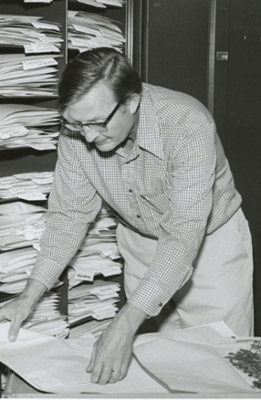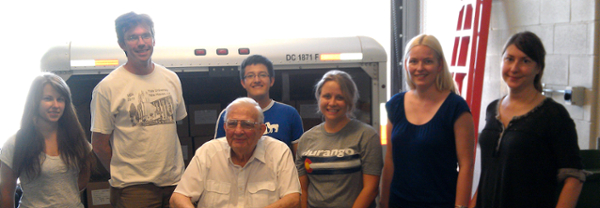Joe F. Hennen (1928–2024)

Dr. Joe F. Hennen was born January 6th, 1928 in Sherman, Texas. He first became seriously interested in plant taxonomy in undergraduate courses taught by the late Dr. Lloyd Shinners at Southern Methodist University (SMU) in Dallas, Texas. After receiving a B.S. from SMU in 1950, he did graduate work in plant pathology and taxonomy of rust fungi in the Arthur Fungarium (PUR) at Purdue University, West Lafayette, Indiana. He received his M.S. in 1952 and Ph.D. in 1954 working with George B. Cummins.
The taxonomy of vascular plants and that of rust fungi was a combination especially interesting to Hennen. From 1954 to 1958, Hennen worked at South Dakota State University as a plant pathologist of cereal crops. This experience impressed upon him the concept that the geographic centers of genetic diversity for crop plants often coincide with the centers of taxonomic diversity of their obligate parasites. Similarly, the intricacies of coevolution of rust fungi with their hosts have long been an area of speculation and research for a multitude of rust taxonomists and plant pathologists.
From 1958 to 1968, Hennen taught a wide range of undergraduate botany courses at Indiana State University. He returned to Purdue University as a Professor of Botany and Plant Pathology and Curator of the PUR in 1968. Upon Cummins's retirement in 1970, Hennen became Director of the PUR the following year.

Jordan Bailey, Andy Wilson, Jorge Diaz, Rachel Koch, Merje Toome,
and current Director M. Cathie Aime.
The most important contributions by Hennen were his fieldwork and collections from several regions of the United States, Central America, and especially Mexico and Brazil, with a focus on the taxonomy of Neotropical rust fungi. In 1995 Hennen retired from Purdue University and moved to Texas, where he became a Resident Research Associate at the Botanical Research Institute of Texas in Fort Worth. Hennen remains in contact with the Purdue Herbaria staff, having visited post-retirement and advised graduate student research conducted in the Aime Lab.
Hennen remained in contact as a consultant to Director Aime until his passing on March 4, 2024 at the age of 96.